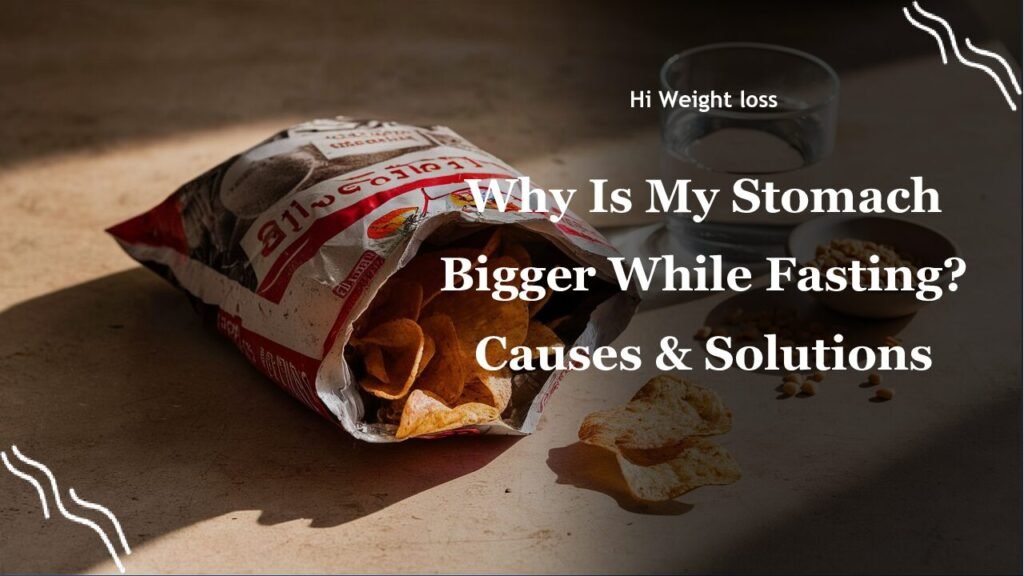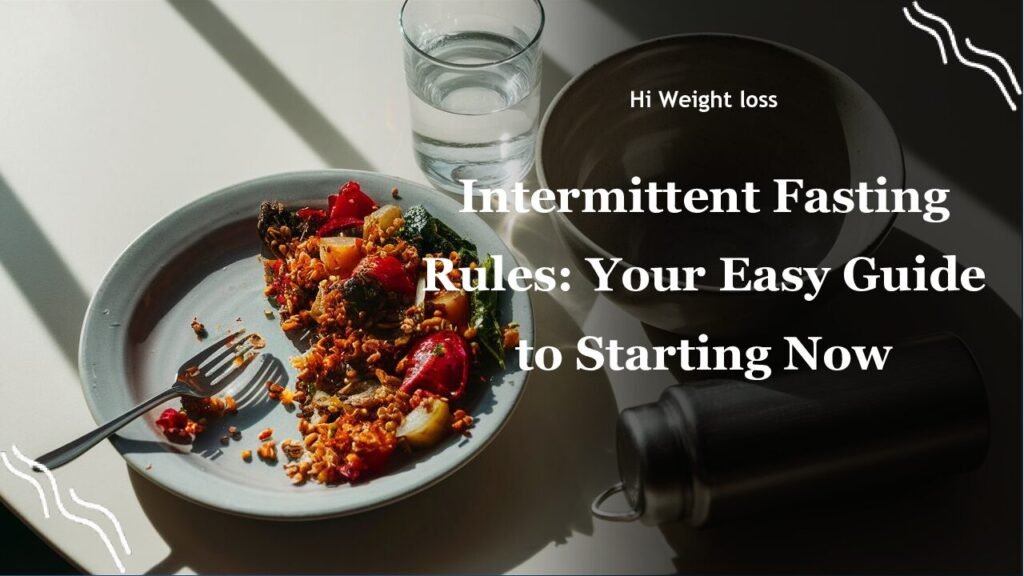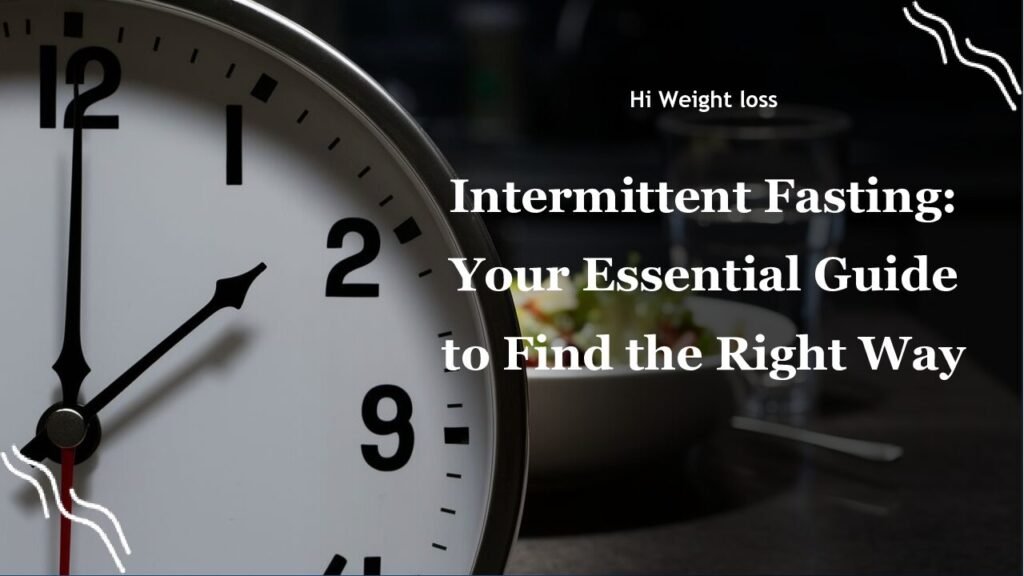“`
Have you ever noticed your stomach feeling larger or more bloated while fasting, leaving you wondering, “Why is my stomach getting bigger while fasting?” It’s a common experience, and it can be quite frustrating, especially when you’re aiming to feel lighter and healthier. This article dives into the primary reasons why you might be experiencing this, from changes in your eating patterns to the types of foods you consume, and will offer practical solutions to help you prevent bloating. Let’s explore together why this happens and how you can manage it.
Understanding Why Your Stomach Gets Bigger During Fasting
It can be perplexing to see your stomach looking bigger while you’re intentionally not eating. There are several factors at play, and understanding them is the first step toward managing the issue effectively. Let’s delve into the main culprits behind this common concern.
Changes in Eating Patterns
When you suddenly change your meal times or how often you eat, your digestive system can struggle to adapt. This sudden shift can lead to digestive discomfort and bloating. It’s like your body is saying, “Whoa, what’s happening?” I remember when I first started intermittent fasting; I was so focused on the “fasting” aspect that I wasn’t paying much attention to the “eating” part. I found myself feeling incredibly bloated initially because my body wasn’t used to this new rhythm of feeding and fasting.
Overeating Too Quickly
Are you prone to eating large amounts of food quickly when your eating window opens? This can overwhelm your digestive system, making it hard to process food effectively and leading to that uncomfortable bloated feeling. I’ve definitely experienced this. During my lunch break, I’d be so hungry that I’d practically inhale my food! It took me a while to realize that this rush was not helping my digestion at all, and I needed to slow down to prevent bloating. As Welltech’s article points out, overeating can be a significant cause of bloating.
Not Eating Enough Fiber
Fiber is essential for a healthy digestive system. Not eating enough can cause constipation and gas because food isn’t moving smoothly through your digestive tract. On the other hand, eating too *much* fiber can also cause bloating because of increased fermentation and gas production by your gut bacteria. My friend Sarah, who is a health enthusiast, told me that after starting her fasting journey, she initially faced discomfort. She was surprised that adding a balanced amount of fiber to her diet had a significant positive impact. It helps to strike that perfect balance when it comes to fiber intake.
Inadequate Hydration Levels
Dehydration can lead to constipation, and constipation often results in bloating. Your body needs adequate water to break down food and soften stools, so not drinking enough can seriously impede digestion. I used to drink very little water, particularly during the early days of my fasting, and it led to a lot of digestive issues. It wasn’t until I made a conscious effort to increase my water intake that things improved. Cleveland Clinic Abu Dhabi notes, adequate hydration plays an important role in preventing digestive problems during fasting.
Ingesting Gas-Producing Foods
Certain foods are known to produce gas in the gut. Legumes, raw vegetables, carbonated beverages, dairy products, and artificial sweeteners can all contribute to bloating. It’s important to be aware of these culprits and adjust your diet accordingly. My colleague, John, loves his carbonated drinks, and every time he fasts, he feels bloated. He didn’t realize that the bubbles were a significant contributor. He was quite surprised when I shared this information.
Stress
Stress can directly impact your gut health. It is known that stress affects the interaction between your brain and gut, causing digestive issues like bloating. If you are already stressed and add fasting on top of that, the combination can lead to even more discomfort. I’ve noticed that whenever I’m feeling anxious or stressed, my stomach tends to act up. I’ve learned that managing my stress levels is crucial for my overall health. As Fastic’s blog explains, stress is a key factor in bloating.
Chewing Gum and Using Straws
You might not think that chewing gum or using straws can cause bloating, but both of these habits can lead to swallowing air. This trapped air can accumulate in your digestive tract and cause discomfort. One of my friends, a frequent gum chewer, often wondered why she was bloating so much. She eventually realized it was her constant gum chewing that was causing the problem.

How to Prevent Bloating While Fasting
Now that we’ve explored the reasons why your stomach might get bigger while fasting, let’s dive into some actionable strategies to prevent this. Here’s how you can tweak your habits for a more comfortable fasting experience.
Pre-fast Meal Planning
Planning your meals ahead of time can be incredibly helpful. This way, you can deliberately avoid those gas-producing foods that are likely to cause bloating. Start using a meal-planning tool to make the process more efficient and enjoyable. I find this incredibly helpful, as a meal-plan gives me the framework for what I need to buy at the grocery store and it gives me more choices.
Keep Track of Food Choices
Keep a food diary while you fast, noting down what you eat and any bloating symptoms you experience. This will help you pinpoint the specific foods that may be causing the issue. This was a real eye-opener for me, it helps you connect what you are putting into your body, and how you are feeling.
Prioritize Mindful Eating
Be mindful of how you eat. Slow down your eating pace, use smaller plates and utensils, and try to spread your meals out more evenly during your eating window. This can significantly improve digestion. It really helps to avoid overloading your stomach and giving it the time it needs to digest properly. I’ve found eating with smaller spoons, or even chopsticks, can help me with portion control and slowing down.
Stay Hydrated
Make sure you’re drinking enough water throughout the day to keep your digestive system running smoothly and to prevent constipation. Aim to drink around 2 to 3 liters of water each day, taking small sips over an extended period of time. I like to carry a water bottle with me wherever I go, as it’s a visual reminder that I need to keep drinking water.
Summary Table
| Cause | Explanation | Solution |
|---|---|---|
| Changes in Eating Patterns | Sudden changes can disrupt digestion, leading to bloating. | Gradually adjust your meal timings to avoid shocking your system. |
| Overeating Too Quickly | Eating large amounts quickly overwhelms the digestive system. | Eat slowly and spread your meals throughout the eating window. |
| Not Enough Fiber | Lack of fiber leads to constipation and gas. | Include a balanced amount of fiber in your meals. |
| Inadequate Hydration | Dehydration leads to constipation, which leads to bloating. | Drink plenty of water (2-3 liters) throughout the day. |
| Gas-Producing Foods | Certain foods cause gas and bloating in your gut. | Be mindful of foods like legumes, raw veggies, and carbonated drinks. |
| Stress | Stress can disrupt the gut-brain interaction causing bloating. | Practice stress-reduction techniques such as yoga or meditation. |
| Chewing Gum/Straws | Swallowing air can cause bloating. | Reduce or avoid gum chewing and using straws. |
Conclusion
Experiencing a bloated stomach while fasting can be a common and bothersome issue, but as we’ve explored, it’s often caused by manageable factors. The key is to understand why your body is reacting this way, from the sudden changes in your eating habits to the specific foods that you’re consuming. Remembering my early days of intermittent fasting when I was rushing my meals and dealing with bloating reminds me that it is all about making small but impactful changes such as slowing down my meals and ensuring I have enough fiber and water. By addressing issues like overeating, dehydration, stress, and the consumption of gas-producing foods, you can significantly reduce the likelihood of bloating. Making mindful choices about your meals and staying hydrated will not only make your fasting more comfortable but also improve your overall well-being. If you are looking to have a smoother fasting experience, try out the tips above and see how your body responds. Don’t be afraid to experiment and see what works best for you. Share this article with others who might be struggling with the same issue and help us all have a healthier, more comfortable fasting journey.
FAQ
Why does my stomach look bigger after fasting?
Your stomach might look bigger after fasting due to factors like changes in eating patterns, overeating too quickly, dehydration, consuming gas-producing foods, stress, or swallowing air from chewing gum or using straws. These can all lead to bloating and discomfort.
How can I prevent bloating during intermittent fasting?
To prevent bloating, plan your meals, avoid gas-producing foods, practice mindful eating by slowing down and spreading meals out, stay well-hydrated, and manage your stress levels. Keeping a food diary can also help you identify what triggers your bloating.
Is it normal to feel bloated while fasting?
Yes, it is fairly common to experience bloating while fasting, especially when you are first adjusting to the changes. It’s your body’s way of reacting to new eating and drinking patterns, and it can be managed with the right strategies.
Can stress contribute to bloating while fasting?
Absolutely, stress can significantly contribute to bloating due to the brain-gut interaction. Try to manage your stress levels with relaxation techniques like yoga or meditation. A calm mind often translates to a calmer gut.
“`



